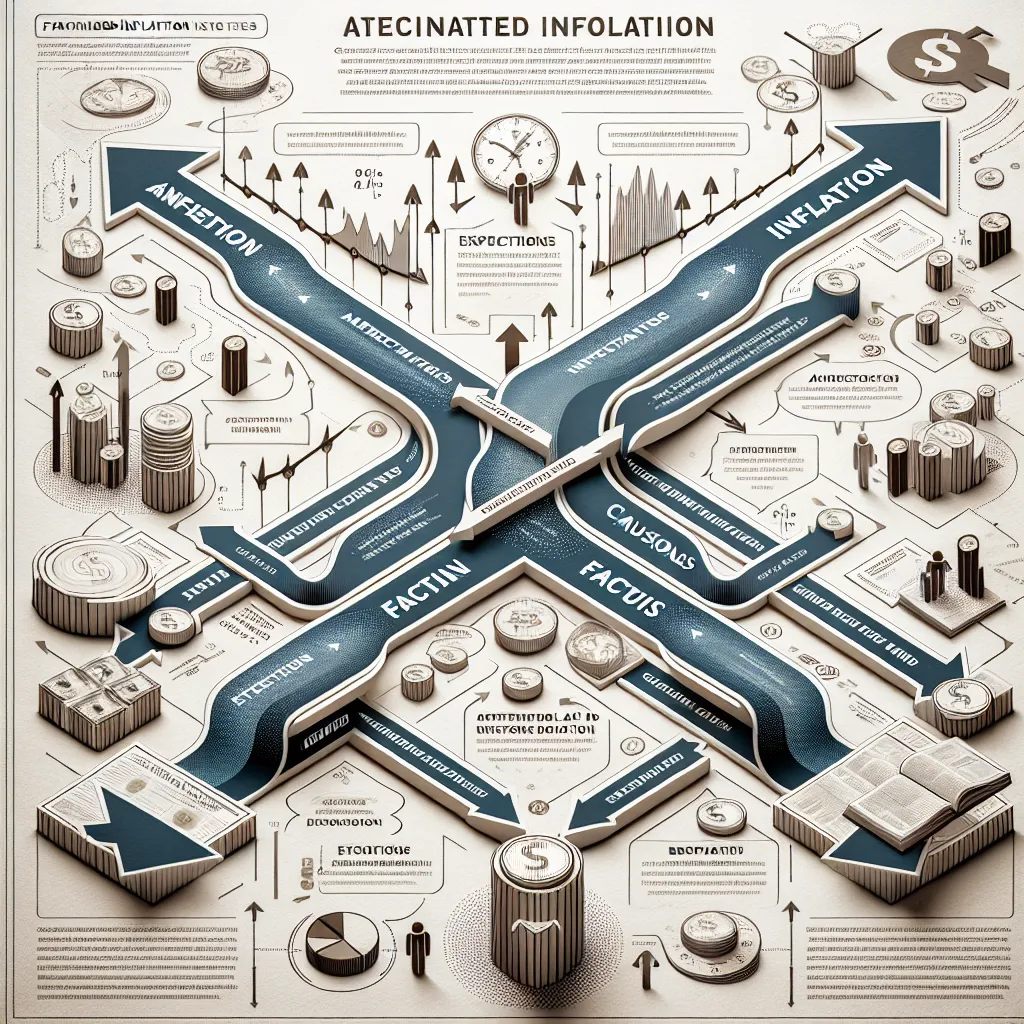Inflation expectations management is a crucial topic in economics that has been appearing more frequently in IELTS Writing Task 2 questions. Given the current global economic climate, it’s highly likely that this theme will continue to feature prominently in future IELTS exams. Let’s explore a sample question and provide a high-scoring essay response to help you prepare for this challenging topic.
Analyzing the Question
Some economists believe that the government should focus on managing inflation expectations rather than actual inflation rates. To what extent do you agree or disagree with this view?
This question asks for your opinion on a specific economic strategy. It’s crucial to:
- Understand the difference between inflation expectations and actual inflation rates
- Consider the potential impacts of focusing on each
- Decide your stance and provide well-reasoned arguments
Band 8-9 Essay Sample
Here’s a sample essay that would likely score in the Band 8-9 range:
In recent years, there has been growing debate among economists about the most effective approach to managing inflation. While some argue that governments should prioritize controlling actual inflation rates, others contend that managing inflation expectations is more crucial. I largely agree with the latter view, as I believe that influencing public perceptions about future inflation can have a more significant and lasting impact on economic stability.
Focusing on inflation expectations offers several advantages. Firstly, when people anticipate stable prices, they are more likely to make long-term financial decisions, such as investments or major purchases, which can stimulate economic growth. This psychological aspect of economic behavior can create a self-fulfilling prophecy, where expectations of low inflation actually contribute to maintaining low inflation rates. Secondly, managing expectations can help central banks maintain credibility and trust, which are essential for effective monetary policy. When the public believes that inflation will remain under control, it reduces the likelihood of panic-driven economic behaviors that can exacerbate inflationary pressures.
However, it would be remiss to completely ignore actual inflation rates. While managing expectations is crucial, it must be grounded in reality. If there is a significant discrepancy between expected and actual inflation, it could lead to a loss of public trust and potentially more severe economic consequences. Therefore, a balanced approach that considers both expectations and actual rates is ideal.
Moreover, the effectiveness of managing inflation expectations can vary depending on the economic context. In countries with a history of hyperinflation or economic instability, focusing solely on expectations may not be sufficient to restore confidence. In such cases, demonstrable control over actual inflation rates might be necessary to rebuild trust in the economic system.
In conclusion, while I believe that managing inflation expectations should be a primary focus for governments and central banks, it should not come at the expense of monitoring and controlling actual inflation when necessary. A nuanced approach that balances both aspects is likely to yield the best results for long-term economic stability and growth. Policymakers must be adept at communicating their inflation targets and strategies effectively to the public, while also maintaining the tools to intervene in the economy when actual inflation deviates significantly from expectations.
(Word count: 345)

Key Points for Writing a High-Scoring Essay
-
Clear Position: The essay clearly states the writer’s position in the introduction and maintains it throughout.
-
Well-Structured Arguments: Each paragraph presents a distinct point, supported by explanations and examples.
-
Balanced View: While agreeing with the statement, the essay acknowledges the importance of actual inflation rates, demonstrating a nuanced understanding.
-
Sophisticated Vocabulary: The essay uses advanced economic terms and phrases appropriately.
-
Coherence and Cohesion: Ideas flow logically, with effective use of linking words and phrases.
-
Conclusion: The conclusion summarizes the main points and reiterates the writer’s position.
Vocabulary to Remember
Here are some key terms used in the essay that are particularly relevant to this topic:
-
Inflation expectations (noun): /ɪnˈfleɪʃən ɛkspɛkˈteɪʃənz/ – The rate at which people expect prices to rise in the future.
-
Monetary policy (noun): /ˈmʌnɪtəri ˈpɒlɪsi/ – The actions of a central bank to influence the money supply and interest rates.
-
Economic stability (noun phrase): /ˌiːkəˈnɒmɪk stəˈbɪlɪti/ – A state of the economy with minimal fluctuations in output and employment.
-
Self-fulfilling prophecy (noun phrase): /sɛlf fʊlˈfɪlɪŋ ˈprɒfɪsi/ – A prediction that causes itself to become true due to people’s belief in it.
-
Hyperinflation (noun): /ˌhaɪpərɪnˈfleɪʃən/ – Extremely rapid or out-of-control inflation.
Conclusion
Managing inflation expectations is a complex yet crucial aspect of economic policy that is likely to appear in future IELTS Writing Task 2 questions. By understanding the key concepts and practicing with sample essays like the one provided, you can improve your ability to tackle such challenging topics. Remember to always analyze the question carefully, present a clear position, and support your arguments with relevant examples and explanations.
To further enhance your skills, try writing your own essay on this topic or a related one, such as:
- “What are the most effective strategies for central banks to manage inflation in a globalized economy?”
- “How does public trust in economic institutions affect the management of inflation?”
Feel free to share your practice essays in the comments section below. This active engagement will help you refine your writing skills and prepare more effectively for the IELTS Writing Task 2.